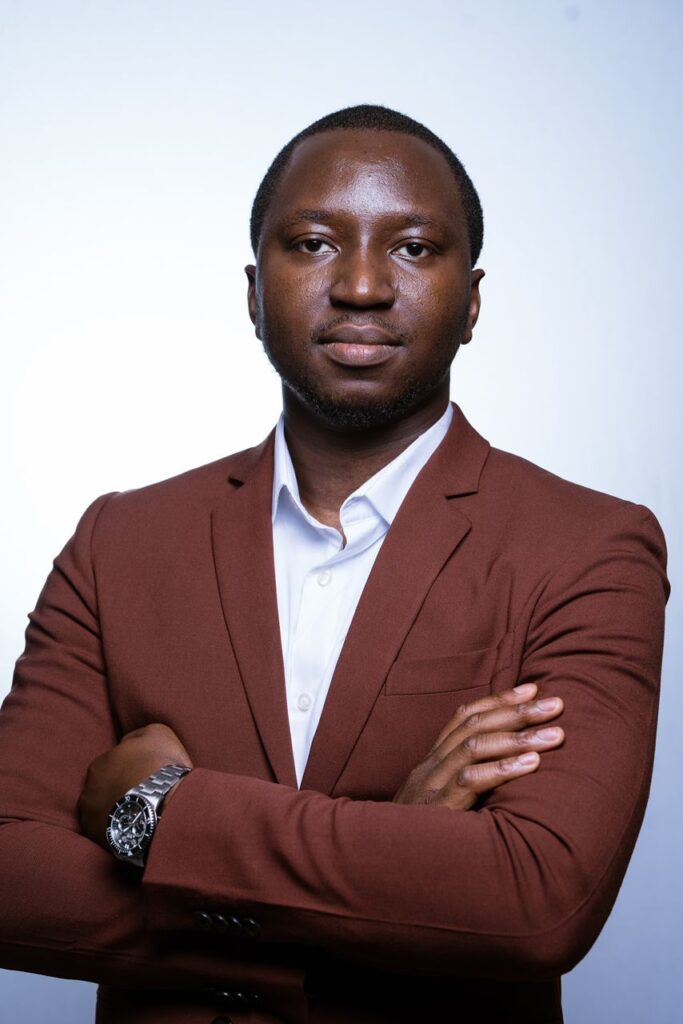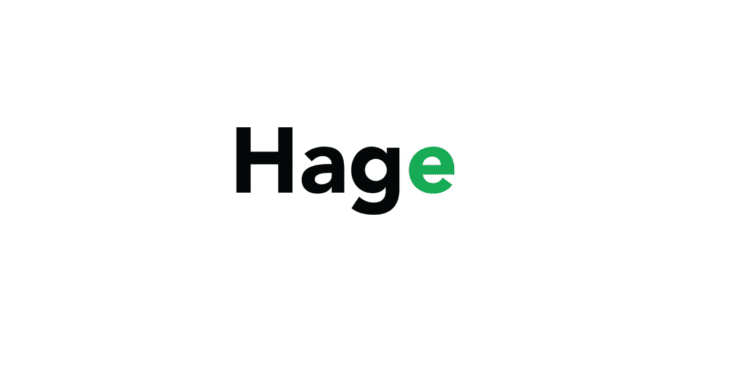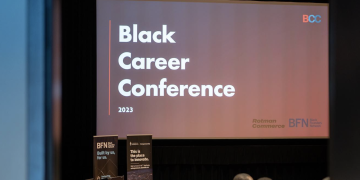When Olamilekan Omotosho launched Hage Logistics Technologies, he was solving a deeply personal problem. After years of navigating the fractured logistics ecosystem between Nigeria and Canada, Omotosho realized the inefficiencies were a systemic barrier to African growth. That insight, grounded in real-world frustration and sharpened by his background in supply chain and his co-founder’s expertise in cross-border logistics, became the seed for Hage: a tech-driven logistics platform built for African markets, diaspora entrepreneurs, and the future of global trade.
In this exclusive interview, the founder breaks down the origin of Hage, what it takes to build a cross-border logistics platform across fragmented markets, and why the future of African logistics must be both local and globally minded.
FOUNDING STORY & VISION
What inspired Hage?
Hage was born out of frustration. My early experience working in my family logistics business in Nigeria, and later navigating the shipment of goods between Nigeria and Canada, revealed how inefficient, fragmented, and unreliable logistics networks across Africa truly are. With a background in supply chain and my co-founder’s expertise in cross-border logistics, we recognized the urgent need for smarter, tech-enabled infrastructure that could empower African businesses, both local and in the diaspora, to scale sustainably and competitively.
How did your African and Canadian experiences shape Hage?
Canada taught me structure and systems; Africa taught me resilience and ingenuity. Together, they form Hage’s DNA: a logistics platform grounded in operational discipline but designed with the flexibility and creativity essential to navigating African and global markets. We don’t simply copy Western logistics models—we adapt and reimagine them for the African context.
Why the name “Hage”?
Hage, originally “Age,” stands for “Age of Africa”—a rallying call for a new era where Africa moves from the margins to the center of global trade. It embodies our mission to build logistics for a future led by African innovation and enterprise. The funny story is that the name “Hage” came about when we couldn’t secure a domain for “Age”—so we added the “H,” giving it a unique, intentional identity.
What’s the bigger dream?
We envision a borderless Africa, where moving goods from Lagos to London or Dakar to Accra is as seamless as shipping within Toronto. But our dream is bigger than logistics—it’s about restoring Africa’s rightful place in the global economy, enabling circular trade, and designing systems that support economic self-determination for generations to come.

BUILDING A CROSS-BORDER TECH PLATFORM
What’s been your biggest challenge?
Fragmentation. Every country has its own customs regulations, infrastructure limitations, and logistics standards. To build a unified platform, we had to engineer a backend that can adapt across regions, while also cultivating deep local partnerships to ensure trust, adoption, and operational success.
What did the MVP look like?
Our MVP, launching in July, is an enterprise-grade inland logistics platform that connects businesses with vetted logistics providers. It features smart dispatch, route optimization, vendor performance tracking, and delivery scheduling—streamlining distribution across major Nigerian corridors. This foundation prepares us to launch our full SaaS platform supporting both inland and cross-border logistics throughout Africa and globally.
Proprietary tech features?
At the heart of Hage is a logistics coordination engine designed to connect logistics service providers (LSPs) with a broader base of customers—essentially becoming the Uber of cross-border logistics. Our proprietary features include AI-driven route matching, real-time fleet tracking, digital documentation workflows, and a mobile-first platform that supports enterprise shipments, inland freight, and last-mile delivery.
Why real-time tracking and AI matter?
Because in African markets and in global trade at large, trust is everything. Real-time visibility builds credibility and helps businesses make better decisions. AI-based route optimization not only saves costs and time but also improves fuel efficiency and environmental impact. For SMEs and diaspora clients, this reliability is transformational.
IMPACT, CUSTOMERS & THE DIASPORA ADVANTAGE
What pain points does Hage solve?
From customs bottlenecks to inconsistent delivery timelines, unreliable logistics providers, and lack of shipment visibility, Hage addresses the core pain points that stunt intra-African and diaspora trade. Our platform offers verified logistics partners, real-time tracking, digital document management, and pricing transparency to restore trust and efficiency.
How does the diaspora fit in?
African diaspora communities often face inflated costs and broken logistics in their business operations or just sending goods to and from home. It’s why Chinese stores in Canada can import cheaper than African stores—they benefit from better logistics networks. Hage levels the playing field by offering diaspora clients access to reliable, cost-effective logistics solutions they can manage remotely, empowering them to play a more strategic and scalable role in African/Global trade.
A customer success story?
We’re still pre-launch, but the validation has been strong. Over 20 logistics and trade partners have signed letters of intent (LOIs) in support of Hage’s vision. These partners see the opportunity in our model—to reduce friction, lower costs, and expand market access. Their early commitment confirms we’re building something both needed and trusted.
THE FUTURE OF LOGISTICS, TECH & BLACK ENTREPRENEURSHIP
Future of logistics in Africa?
It’s digital, decentralized, and data-driven. Africa has a unique opportunity to leapfrog outdated systems and build modern logistics solutions from the ground up—by harnessing mobile-first infrastructure, embedded fintech, and AI. What excites me most is contributing African-born solutions to global trade problems.
Challenges and advantages as a Black entrepreneur?
The hardest part is access to capital. Lack of funding can slow down momentum or cause truly innovative projects to fade before reaching market. This is especially true for Black founders building across borders. But the advantage lies in our authenticity. Living between two worlds gives me insights others may miss—and it’s this lived experience that helps us build better, with purpose.
Strategic partnerships?
They are everything. We’re forging relationships with FinTechs (for trade finance and escrow services), customs agencies (for smoother clearances), and global trade organizations (for policy and corridor alignment). Logistics is a team sport—introductions, champions, and collaborators can be the difference-makers. We welcome all who want to build with us.
Advice to diaspora founders?
Start with empathy. Solve problems you know firsthand. Don’t romanticize Africa, but don’t underestimate it either. You’re not just solving local issues; you’re contributing to global equity. The future is here, and it’s ours to build.
Moving Forward
As Hage gears up for its MVP launch, its mission feels bigger than logistics. It’s about unlocking the potential of African trade, empowering diaspora entrepreneurs, and designing systems where African innovation leads global solutions. For Olamilekan Omotosho, logistics isn’t just about moving goods. It’s about moving power, possibility, and a continent forward.













